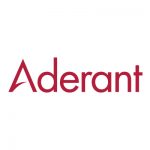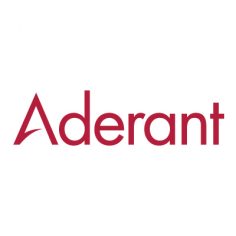Shake up the knowledge
As legal businesses have grown, merged, dispersed and outsourced, one challenge for lawyers remains – finding exactly the information they need in time for it to make the optimum difference.
Whether that’s serving an existing client in a new way, or winning a profitable new one, approach to knowledge management (KM) is key. However, KM may well need some radical transformation all of its own, says Aderant executive vice president Chris Cartrett.
“Traditionally, a group of knowledge managers would organise their data quite tactically – moving pieces of information into the correct place, educating people about it, physically helping them to find it, and tapping into the knowledge that stayed in people’s heads. All those actions are still important – but today KM also needs to inform and prompt the best decisions and predict their outcomes.”
In short, it’s the difference between a “tactical” and a “strategic” approach. Software has the potential to help transform from one to the other.
But that’s only if that tech meets certain criteria. “Firms have excellent content everywhere they turn today – from multiple suppliers, as well as from applications developed in-house for specific types of work or practice. The big challenge is how it’s managed, presented and ultimately consumed.” Multiple user interfaces, for example, don’t help busy lawyers to benefit from this wealth, says Cartrett. “If you don’t stick to the same system, you’re likely to forget your log-in details, never mind the best way to mine useful information.”
KM technology is a necessity, not a luxury, he continues. “One firm I know realised its true potential by placing a measurable goal on the table, which would translate into real profit. When pitching her idea to the executive committee, the director of KM asked the somewhat rhetorical question, ‘What would a 5% increase in lawyer efficiency mean to our bottom line?’ At any firm in the world, a 5% increase in billable across the board would mean a huge revenue increase.
“Given the green light, the firm’s customised solution meant lawyers started and ended each day with a system designed around their specific workflows. The firm created an environment where lawyers could focus on the practice of law. Sure enough, the firm has realised the 5% increase in billable hours – in some cases as much as 30%.”
Helping hands
In 2017, Aderant acquired Handshake Software to make a significant difference in this space – not only filtering firm-wide knowledge of work, news and connections into a digestible, actionable display, but also integrating that with other Aderant datasets, such as billing and matter management. Many more integrations, including with other providers, are set to follow.
Cartrett explains: “Handshake offers a single place to collect and view as much relevant information as possible: from legal research, document management, diaries, or anywhere else in the firm’s systems – even clients’ billing activity or guidelines.” Increasing KM efficiency has a direct impact on revenue and profitability, he says. It can assist with practice cross-selling, as well as pitching for new clients and retaining long-valued ones. “In a growing firm, people need a way to understand what all sorts of other people, in other places, can bring to the table. An improved understanding of who has previously drafted which types of business documents – connected to which specific courts, for example – helps lawyers make better decisions for their clients.
“Handshake’s Expertise Locator module allows a lawyer to find the firm’s internal experts. But beyond ‘the who’, it also shows why they are experts, and provides an ability to rank them according to firm preferences.” The system’s reporting feature, KM Analytics, also takes data points such as profitability, realisation, search time and usage patterns to quantify this return.
The power of purpose
Cartrett continues: “The most impressive firms are now bringing their knowledge together around collective purpose rather than collections of links.” Handshake’s role is to ensure the data that feeds into that is both relevant and manageable. In an age of smartphones, social media and ‘fake news’, we can all appreciate the risk of ‘information overload’ hampering best decisions. “But a lot of the time there’s excellent information in systems people simply don’t realise is available,” he says.
It should fall to automation, therefore, to recommend, discard and prioritise content that’s a match for a practice, client, role, task, or some other variable. “In the past, lawyers would need to assemble and browse newsfeeds.” In the future, by contrast, it will be served in the same way as businesses like Amazon or Netflix do for retail and entertainment, he says. Inevitably, this raises the question of perhaps harnessing machine learning to make predictions based on past successes – and indeed, Cartrett says this is one area of firm strategy where AI can be expected to have an “immense impact” in time.
For now, firms can either build up views in Aderant’s Handshake for themselves, based on their structures and strategies, or opt for Handshake Connect – an ‘out-of-the-box’ version where key decisions about content views are already taken. This should be especially attractive to smaller firms, with fewer resources to throw at their KM strategy, enabling them to see a faster initial return but still adapt in future



